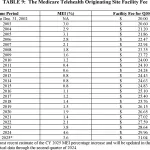Poor gut health can show up as persistent tiredness, digestive upset, skin problems, and autoimmune issues. Using probiotics, eating fermented foods, staying well hydrated, and managing stress are all strategies that can help restore balance.
What is the gut microbiome, and why does it matter?
The phrase “gut microbiome” describes the microbes that live in your intestines. Your digestive tract hosts trillions of bacteria, viruses, and fungi.
While some microbes can be harmful, many are essential and beneficial for maintaining good health.
Evidence suggests that greater diversity of gut bacteria may lower the likelihood of conditions such as:
- diabetes
- inflammatory bowel disease (IBD)
- psoriatic arthritis
Put simply, the condition of your gut often reflects your overall health.
Keep reading to find out exactly how your gut influences whole-body health, common indications of a compromised gut, and practical steps and foods to help improve gut health.
How does the gut microbiome influence your health?
The gut’s complexity and its role in general health have become major subjects of medical research.
Studies over recent decades have linked gut health to a variety of conditions, including:
- mental health disorders
- autoimmune illnesses
- endocrine disorders
- digestive diseases
- cardiovascular disease
- cancer
A gut populated by many different strains of bacteria is often associated with better mental and physical wellbeing.

7 signs of an unhealthy gut
Many aspects of modern life can disturb the gut microbiome, such as:
- chronic stress
- inadequate sleep
- a Western-style diet rich in processed and sugary foods
- antibiotic use
These factors can then impact other body systems, affecting:
- immune function
- hormone balance
- body weight
- risk of disease
If your gut health is diminished, you may notice several symptoms. Here are seven common signs to watch for:
1. Digestive upset
Problems with digestion can point to an unhealthy gut. Typical complaints include:
- excess gas
- bloating
- constipation
- diarrhea
- heartburn
A balanced gut typically handles food breakdown and waste elimination more efficiently, which tends to reduce these issues.
Because these symptoms can also be caused by specific gut-related illnesses, prolonged problems should be discussed with a healthcare provider.
2. A diet high in sugar
Eating lots of processed items and added sugars can lower beneficial bacteria and reduce microbial diversity in the gut.
Research indicates that excessive sugar intake may trigger systemic inflammation, which can precede diseases including some cancers.
If your diet is heavy in sugar, your gut health could be negatively affected.
3. Unexplained weight changes
Unexpected weight gain or loss without changes to diet or activity can signal gut imbalance. A disrupted microbiome can impair nutrient absorption, affect blood sugar regulation, and influence fat storage.
Unintentional weight loss may stem from malabsorption, such as in small intestinal bacterial overgrowth (SIBO), while weight gain can be linked to insulin resistance or inflammation.
If you experience unexplained weight shifts—especially weight loss—consult a doctor to exclude serious causes.
4. Sleep problems or constant tiredness
Some studies suggest that an imbalance in gut bacteria may be associated with fragmented sleep and shorter sleep duration, which can contribute to persistent fatigue.
Although the exact mechanism isn’t fully known, connections likely involve inflammation, metabolic processes, and mental health.
5. Skin issues
Conditions such as psoriasis may relate to the composition of gut bacteria. Lower levels of beneficial microbes can influence immune responses and, in turn, affect skin health.
6. Autoimmune disorders
Multiple studies have found links between the gut and the immune system.
An unhealthy gut may elevate systemic inflammation and disrupt normal immune function, potentially contributing to autoimmune disorders in which the body mistakenly attacks its own tissues.
7. Food intolerances
Food intolerances arise when the body struggles to digest certain foods and are distinct from food allergies, which involve immune reactions.
Research suggests that poor-quality gut bacteria may underlie intolerances like lactose intolerance, leading to symptoms such as:
- bloating
- gas
- diarrhea
- abdominal pain
- nausea
Some evidence also links altered gut microbiota to food allergies.
How to support and improve your gut health
Many aspects of gut health can be improved through changes in lifestyle and diet. Consider trying some of the following natural approaches to promote a healthier gut:
1. Reduce stress
Chronic stress negatively affects the whole body, including the gut, because stress hormones can alter physiological processes and harm gut balance.
Ways to reduce stress include:
- meditation
- walking
- massage
- spending time with loved ones
- using essential oils
- limiting alcohol
- laughing
- yoga
- interacting with pets
2. Prioritize sleep
Poor sleep quantity or quality can harm gut health and create a vicious cycle of worsening sleep and digestion.
Aim for at least 7–9 hours of uninterrupted sleep nightly. If you struggle to sleep, speak with a healthcare professional for guidance.
3. Eat more slowly
Taking time to chew well and eat at a slower pace can reduce the risk of obesity and diabetes, help you make healthier choices, and lessen digestive discomfort.
This practice may also support a healthier gut.
4. Keep hydrated
Drinking adequate water is associated with greater bacterial diversity in the gut, though the source and quality of water matter.
One study found that higher water intake correlated with lower levels of a bacterium linked to gastrointestinal infections.
Staying hydrated helps overall health and can prevent constipation, offering a simple way to aid gut function.
5. Consider prebiotics or probiotics
While research continues, taking a prebiotic or probiotic supplement may help improve gut balance. Prebiotics feed beneficial bacteria, while probiotics supply live helpful microbes.
People with severe illnesses or weakened immune systems should avoid probiotics. Also, not all supplements are equal in quality or effectiveness.
Consult a healthcare professional before choosing a probiotic or prebiotic to ensure it’s appropriate for you.
»Learn more:Probiotics 101: A Beginner’s Guide6. Test for food intolerances
Symptoms that may suggest a food intolerance include:
- bloating
- abdominal pain
- diarrhea
- gas
- nausea
- fatigue
- acid reflux
Eliminating common trigger foods temporarily may reveal whether symptoms improve. Identifying and avoiding problem foods can lead to better digestive health.
When removing foods from your diet, do so under medical supervision to avoid nutrient deficiencies and unnecessary restrictions.
7. Modify your diet
Cutting back on processed, sugary, and very fatty foods can promote better gut health.
A diet rich in fiber supports a healthy microbiome. Consuming foods high in polyphenols—micronutrients found in:
- vegetables
- fruits
- coffee
- tea
- wine
may also benefit your gut.
4 categories of foods that support gut health
Diet and the microbiome are closely connected. Avoiding processed, high-fat, and sugary foods helps prevent overgrowth of harmful microbes.
Certain foods encourage the growth of beneficial bacteria and support overall wellbeing. These gut-friendly foods include:
1. High-fiber foods
Research shows that fiber-rich foods positively influence gut health. Examples are:
- legumes like black beans and chickpeas
- whole grains such as oats and quinoa
- vegetables like broccoli and asparagus
- nuts like almonds and pistachios
- fruits such as apples and peaches
2. Garlic
Animal studies suggest garlic can increase microbiome diversity. A small human trial of 49 participants found aged garlic extract raised diversity and beneficial bacteria levels, though more human research is needed.
3. Fermented foods
Fermented foods are natural sources of probiotics. Examples include:
- kimchi
- sauerkraut
- yogurt
- kefir
Studies indicate that including these foods in your diet may improve the gut microbiome.
4. Foods that support collagen
Collagen-rich items like bone broth and salmon skin may benefit gut and overall health.
Animal research suggests collagen supplements may positively affect the gut microbiome, but further human studies are required.
You can also encourage your body’s own collagen production by eating more:
- citrus fruits
- broccoli
- meat
- eggs
- nuts
Frequently asked questions
Why does the gut microbiome differ between people?
The gut microbiome is shaped by many factors, including:
- diet
- environment
- antibiotic history
- stress
- sleep patterns
- genetics
Variations in these elements create unique microbiome profiles among individuals.
How does fasting affect the gut microbiome?
Fasting appears to have beneficial effects on the gut, but more human studies are needed.
One small 2019 study of 16 people found fasting was linked to reduced levels of a bacterium associated with colorectal cancer.
Animal research supports fasting’s benefits: studies in fruit flies showed intermittent fasting improved gut health and lifespan, while mouse studies found fasting encouraged growth of beneficial bacteria and reduced intestinal inflammation.
Do probiotics really alter your gut microbiome?
Some trials report no change in the microbiome from probiotics, while others suggest probiotics can meaningfully shift gut composition and improve aspects of health like immunity.
Research in this area is ongoing.
How can I boost my gut health?
Improving gut health often means improving overall health: eat more fiber-rich foods, limit ultra-processed items, get adequate sleep, and manage stress.
What are common signs of an imbalanced gut?
Symptoms of disrupted gut bacteria may include digestive upset, unexplained weight changes, and persistent fatigue.
Takeaway
The human gut is intricate. Although research continues, it’s evident that the gut microbiome plays a major role in whole-body health. A healthy gut supports:
- a robust immune system
- cardiovascular health
- brain function
- better mood
- healthy sleep
- effective digestion
- potentially reduced risk of some cancers and autoimmune diseases
Dietary and lifestyle adjustments can improve gut health and, in turn, your overall wellbeing.

























Leave a Reply
You must be logged in to post a comment.